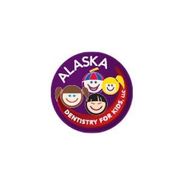Anchorage Children’s Dentist Reveals the Truth About Thumb Sucking

We’ve all witnessed a child sucking his or her thumb and have probably wondered about the habit and its dental repercussions. What do children’s dentists think about the practice? Alaska Dentistry for Kids in Anchorage explains more about thumb sucking and its connection to dental health.
To encourage healthy dental care, parents and dentists urge children to brush daily, floss, and rinse with mouthwash. However, babies and toddlers are too young to utilize these methods to oral success, and, when you add a pacifier or thumb into the mix, parents might get worried about what to do next.
The good news is that children tend to slowly drop the habit on their own before they reach preschool. In fact, it’s perfectly normal for infants to suck their thumbs, and they even perform the soothing practice while in the womb. Babies and toddlers might even feel secure doing this, as it’s considered a coping mechanism for anxiety.
 However, prolonged sucking after the age of four can start to cause permanent damage to the teeth, jaw, and roof of the mouth. A children’s dentist can explain the effects of misalignment, palate changes, and a permanent bite.
However, prolonged sucking after the age of four can start to cause permanent damage to the teeth, jaw, and roof of the mouth. A children’s dentist can explain the effects of misalignment, palate changes, and a permanent bite.
Parents can help intervene with thumb sucking after the age of four. Although kids tend to learn from social situations that it is not acceptable to suck their thumbs after a certain age, a charted reward system encourages them to quit. A bandage, sock, or glove can also be placed on the hand to prevent thumb sucking. Positive reinforcement is the best way to assist your child through this process because criticism might cause anxiety and further problems.
Visiting a children’s dentist is the first step to putting your kid’s dental care at the forefront of health care. Learn how to help your child overcome thumb sucking by calling Alaska Dentistry for Kids at (907) 274-2525. Contact them online to set up an appointment, and you will be helping your child achieve a beautiful smile along with confidence for a lifetime.
About the Business
Have a question? Ask the experts!
Send your question

